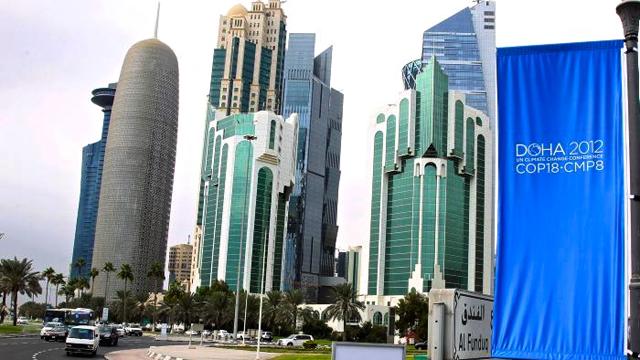
Last month was the 333rd consecutive month that global temperatures were above the 20th Century average, and 2012 will almost certainly be the hottest ever recorded in the US. Hurricanes, heatwaves, wildfires and droughts blistered farmlands and ruined crops from Kansas to Assam, and Britain has had its wettest summer and driest spring to date. Nigeria, China and much of India and Australia have all had their worst floods in decades. In September the Arctic sea ice cover shrank 50% below the 1979-to-2000 average.
In a world where climate extremes come faster than ever, the World Bank has found common ground with Greenpeace. Last week, even as the World Meteorological Organization reported that the amount of greenhouse gases in the atmosphere had reached a record 394ppm, the bank warned that the world is on course for a 4°C temperature rise which will consign most people to a very different and much less liveable world, and which will inevitably wreck economies and hopes of development.
The UN, too, estimated greenhouse gas emissions to be 14% above where they need to be to hold temperatures to a manageable 2°C rise. The biggest corporations, including oil companies like Shell, want governments to introduce a carbon price and to seriously address climate change. Even Saudi Arabia and the oil exporters of OPEC are considering levying a carbon tax to give to the UN fund that helps poor countries adapt to climate change.
Evidence of global warming mounts both on the ground and in science, but in the bubble world of international climate diplomacy, little happens. Countries have become less and less able to collectively address the crisis unfolding around them. When UN talks fell apart in Copenhagen in 2009, world leaders claimed they could cobble together a new binding agreement to cut emissions within six months. That became a year, then two years, and now the rich countries tell a bemused public that it will be 2015 at the earliest before a final agreement will be reached.
Trillions of dollars can be found to bail out banks in a few months, but the world's most experienced negotiators cannot find a way to get Americans, the British or anyone to just turn down the air conditioning or lag their roofs to reduce the amount of energy they use.
So what is the point of the massive UN climate talks which started Monday in Doha, one of the most energy-profligate cities on Earth? Negotiators from 194 countries are meeting in an atmosphere of mutual mistrust. They are divided and frustrated, and know their political masters mostly seek only painfully slow progress.
We already know rich countries will refuse to commit to any further cuts in emissions or to provide more money, just as we know the poor will try to cling to the few global climate agreements reached between nations years ago. There will be fights, tantrums, and righteous anger from the non-government observers and world media.
The blame for this miserable state of diplomatic affairs must be laid squarely on the US in particular and the rich countries in general. For three years now, they have bullied the poor into accepting a new agreement. They have delayed making commitments, withheld money and played a cynical game of power politics to avoid their legal obligations. The resulting distrust has fatally plagued the talks.
In 2009 the rich countries agreed to give $100 billion by 2020 to help poor countries adapt to climate change. So far, they have not even provided the $30 billion they promised as a down payment. Instead, they have offered less than the annual bonuses given in the City of London – and most of that in the form of loans, not grants.
Led by the US, the rich have now wrecked the Kyoto treaty, the one international agreement that legally binds the rich to making cuts, and now it appears they want to ditch the Bali action plan, which commits the US and other countries to reduce emissions. Meanwhile Europe, after three years, still will not say what cuts it is willing to commit to even though the first phase of Kyoto expires in a few months and there is nothing in its place .
The time for such cynicism and parsimonious diplomacy must be over. Obama, trailing victory, missed the chance to lead the world at Copenhagen but can now commit the rich world to a generous agreement. Britain, who will send two ministers to Doha, can lead Europe. A new Chinese administration can be flexible.
The science and evidence of climate change is clearer than ever, the poor countries on the frontline of the immense changes taking place have done everything that was asked of them by the rich to cut their emissions. In short, there is little time left and no more excuses.
3 WAYS TO SHOW YOUR SUPPORT
- Log in to post comments
















